Cwrdd â’r tîm
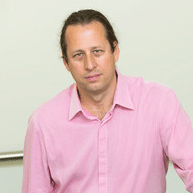
Professor Alan Guwy
Principal Investigator
Professor Alan Guwy is the Director of the Energy and Environment Research Institute (EERI) at the University of South Wales and the Head of the Sustainable Environment Research Centre (SERC). His research is focused on renewable generation of hydrogen, the optimization of anaerobic fermentation to produce bioenergy in the form of hydrogen and methane gas, bioelectricity using microbial fuel cells and bio-electrocatalytic systems water and wastewater treatment and analysis of recalcitrant pollutants.
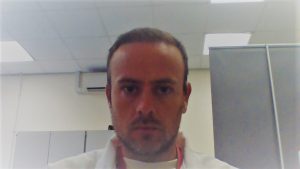
Dr Rodrigo Fernandez
Research Assistant
Rodrigo Fernandez Feito is a research assistant in the SERC since April 2017. Rodrigo completed his B.Sc and M.Sc in mechanical and industrial engineering at the University of Oviedo (Spain) and short after he worked as research assistant in the same university. Rodrigo started his PhD in the University of South Wales in 2014 and at the moment he is pending his viva. His research interests lie in the area of developing new instrumentation for online process monitoring and more specifically for monitoring and control of anaerobic digestion processes. During his PhD, Rodrigo developed a new analytical system to determine volatile fatty acids and he is currently working in its improvement for robust and reliable VFA online monitoring.
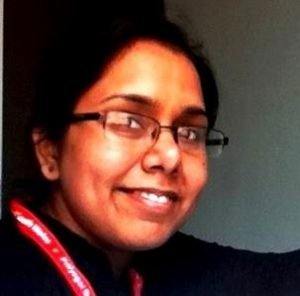
Dr Amandeep Kaur
Research Fellow
After finishing my “Bachelors in Science” and “Masters in Microbiology” from India I worked for 2 years as a Research Assistant at Institute of Microbial technology (CSIR-IMTECH, India) and gained experience in morpho-molecular identification and phylogeny of filamentous fungi; was also involved in sequencing of “mating-type genes” in Colletotrichum, the causal agent of anthracnose in chilli. In 2010, I moved to the United Kingdom to pursue doctoral studies at University of South Wales (USW) on Microbial Fuel Cells (MFCs) under EPSRC funded SUPERGEN Biofuel cell consortium Project. During doctoral studies the main focus of my research was use MFCs and their application for the measurement of volatile fatty acids (VFA) as the online measurement of VFAs is important in determining the state of many bioprocesses. After finishing doctorate degree I started working as Research Fellow at USW in 2015. The overall main focus of my research at USW is the treatment of waste water or other wastes by using bioelectrochemical systems (BES) which further under FLEXIS project specifically involves renewable hydrogen production using microbial electrolysis cell (MEC) and also integrating BES with other bioenergy systems for enhanced hydrogen production. I am also involved in collaborative NERC Resource Recovery from Waste programme’s MeteoRR using scale up BES tubular systems and LifesCO2R a collaborative project that mainly involves bioelectrochemical synthesis of fuels from CO2 reduction and its scale up.
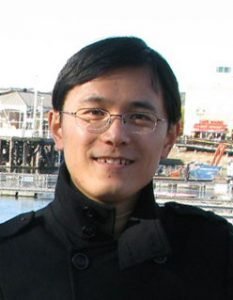
Dr Fan Zhang
Lecturer
Fan Zhang received PhD and MSc in Control Systems from the University of Sheffield in 2009 and 2004, respectively. His major research interests focus on modelling, control and optimisation of the renewable power generation and utilisation system, especially using hydrogen as an energy carrier for storage. His research includes dynamic system modelling and control at both individual component level as well as at system level, to ensure optimal integration of electrolytic / storage / fuel cell system with renewable electricity supply, as well as hydrogen system integration and application, such as stand-alone or grid connected renewable hydrogen system, renewable powered smart grid, fuel cell system application, and alternative fuel vehicles.
Dr Iain Michie
Research Fellow
Iain Michie completed an EPSRC SUPERGEN (BioFC) funded PhD at the University of South Wales investigating Microbial Fuel Cell anodic biofilms/reactor systems and was then subsequently employed as a Research Associate during the second phase of the BioFC SUPERGEN. He is currently a research fellow working on bioelectrochemical systems as part of EPSRC LIFE2CORE and NERC METEORR projects. His research interests lie in the production of energy products such as hydrogen, methane or electricity, and in understanding the dynamic development of electrochemically active microbial microorganisms and how these may be engineered as biocatalytic processes.
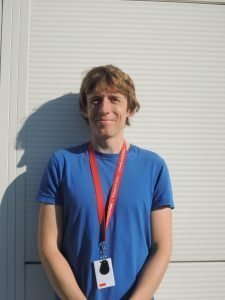
Dr Stephen Carr
Research Fellow
Stephen Carr is currently a research fellow at the University of South Wales, UK. He received his Mphys degree in Physics from the University of Oxford in 2004, and his PhD in energy systems modelling from the University of Glamorgan in 2010. He has worked on the UK Sustainable Hydrogen Energy Consortium (UKSHEC) Supergen project funded by the EPSRC, investigating the optimal use of hydrogen energy storage on electricity networks. His has recently worked on the CymruH2Wales project investigating renewable hydrogen systems, and the Innovate UK funded Island Hydrogen project investigating optimal operation of hydrogen refuelling systems for vehicles. His current research interests include electricity systems modelling, energy storage and hydrogen energy systems.
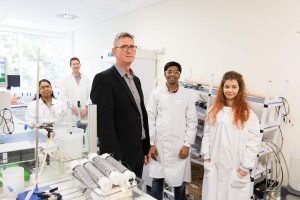
Giuliano Premier
Professor of Low Carbon Systems Engineering
Giuliano Premier (Professor in Low Carbon Systems Engineering) of the Sustainable Environment Research Center (SERC) has pursued research activities covering renewable energy systems, biological wastewater treatment, anaerobic digestion, biohydrogen production, hydrogen energy systems, microbial fuel cells and bioelectrochemical systems (BES), metrology, computer aided control system design, modelling and automatic control of bio- and bioelectrochemical processes. He has led and/or been co-investigator in several collaborative funded projects funded by EU FP, H2020 and ERDF, EPSRC, BBSRC, NERC, including current interests in NERC RRfW MeteoRR, EPSRC Lifes-CO2R, FLEXIS and H2020 RES-URBIS. Premier held the Chair of the BBSRC NIBB ADNet, Integration and Modelling; the Boimass and Waste to Energy in the Technical Committee of World Renewable Energy Congress (WREC), (2011-2017). Was awarded ‘Pioneer’ WREN 2016 and was Associate Editor of International Journal of Automation and Control (IJAC), on International or Scientific Committee of the SUPERGEN H2FC and several conferences inc. IWA 2013: Anaerobic Digestion AD13; IWA ICA 2013; UKACC 2014.
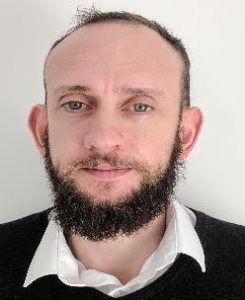
Dr. Jaime Massanet-Nicolau
Research Associate
My background is in industrial microbiology and biotechnology. Before Joining the University of South Wales I worked for Astra Zeneca and Thames water as a plant pathologist and microbial researcher respectively. I joined the University of South Wales as a PhD student in 2003, my thesis dealt with the biological production of hydrogen from sewage biosolids. I have since worked on a number of European projects related to bioenergy and biomaterials production.
My research interests involve adapting microbial processes to produce fuel and other useful compounds from waste materials and biomass. I develop anaerobic digestion methodologies than can cope with ‘real world’, structurally complex biomass types including, food waste, crop residues and wastewater biosolids. I also collaborate with my colleagues in the Sustainable Environment Research Centre (SERC) on novel ways to integrate anaerobic digestion with emerging bio-energy technologies such as microbial fuel cells, microbial electrolysis cells and electrochemical separation.
Recently I have begun to apply some of the concepts used in the anaerobic digestion of biomass, to the biological production of sustainable materials from other substrates such as waste gases, renewably produced hydrogen and carbon dioxide. I currently supervise two PhD students working in this field.
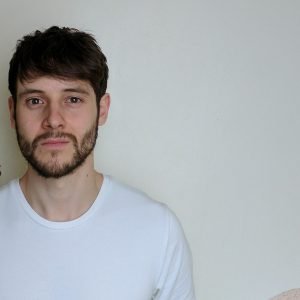
Rhys Jones
Research Assistant
Rhys studied B.Sc. Physical Geography and Geology at the University of Glamorgan and graduated in 2009. He later developed a keen interest in renewable energy and went on to study M.Sc. Renewable Energy and Resource Management at the University of Glamorgan in the academic year 2011/2012. He graduated with distinction and then worked for a year in the renewable energy sector, before joining SERC at the University of South Wales to begin work on his Ph.D. project entitled, Enhanced biological hydrogen production using extraction systems in 2013. He hopes to defend his thesis in summer 2017 and is currently employed as a research assistant at the University of South Wales. Away from academia, Rhys is a keen rock climber and musician.
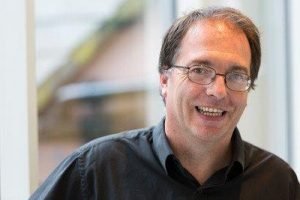
Professor Richard Dinsdale
Chair of Sustainable Environmental Systems in the Sustainable Environment Research Centre
Professor Richard Dinsdale`s first degree was in Applied Biology (Biotechnology) with his PhD in the field of anaerobic digestion. His research activities are directed at optimizing microbial cultures for the production of energy either as hydrogen, methane or directly as electrons from low grade biomass resources including wastes or other products such as volatile fatty acids and bioplastics. He has received funding either as principal investigator or co-investigator of over £6 million from the EPSRC, BBSRC, and NERC, the European Framework programs, European regional development funding or industry. I have been funded in 5 EPSRC SUPERGEN projects and was the scientist in charge of a FP6 Marie Curie project. He has supervised over 15 PhD students to completion. On the ISI database, he has over 80 international journal papers and an H Factor of 29.
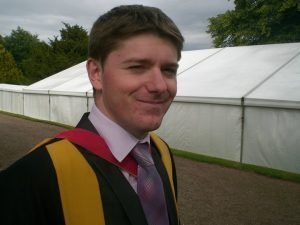
Christian Laycock
Lecturer
There is increasing interest in converting waste streams into electrical power, heat or useful fuels and chemicals such as hydrogen, methane and ammonia. Solid Oxide Cells (SOCs) are high temperature (500-1000°C) energy conversion devices which offer a high efficiency and flexible way to achieve these types of conversions. They are ideally suited to stationary applications and are capable of utilising a wide range of fuels and feedstocks including hydrogen, natural gas, waste gases and waste heat. The aims of my research are to investigate the chemistry of fuel and feedstock processing in SOC devices running in fuel cell and electrolysis mode in order to increase their performance, durability and economic viability. In particular, my research focusses on the effects of fuel variability and fuel contaminants on the behaviour and outputs of SOCs running on gases derived from biomass and waste streams.
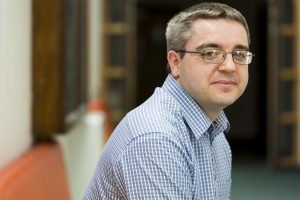
Dr Gareth Owen
Senior Lecturer
Gareth Owen received a Ph.D. degree from Imperial College London in 2003. He subsequently worked in the research group of Professor John A. Gladysz, first as a postdoctoral researcher and later as an Alexander von Humboldt Research Fellow. Dr. Owen returned to the UK following the award of a Centenary Ramsay Memorial Research Fellowship which was hosted at University of Bristol. He was later awarded a Royal Society Dorothy Hodgkin Research Fellowship again at Bristol. In 2012, he was awarded an Organometallics Fellowship prize from the American Chemical Society. Dr. Owen joined the University of South Wales as a Senior Lecturer in Inorganic Chemistry in 2013. He has published 45 research articles and reviews during his research career to date. His research is currently also funded by the Leverhulme Trust and KESSII agencies. His main research interests lie in the areas of organometallics and homogeneous catalysis with a particular focus on hydrogen activation. This involves the chemistry of boron based ligands which act as reversible hydrogen atom stores and the investigation of hydrogen shuttle-type transformations for the development of novel transformations.
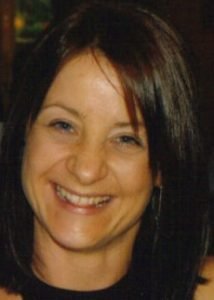
Emma Blow
Research Project Co-ordinator
Emma is a Research Project Co-ordinator at the University of South Wales. She has worked in the University since 2010 supporting the delivery of externally funded research activities. Emma has a BA in Business Studies and has recently completed PRINCE2. Before joining the University of South Wales Emma worked as a Management Accountant for a large call centre in Dublin and also spent some of her career as a European Project Officer at the Welsh Development Agency. Emma enjoys running and has run the London and Dublin marathon.


